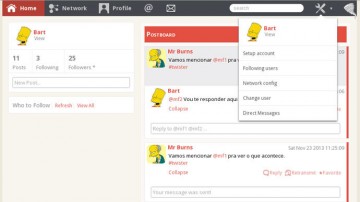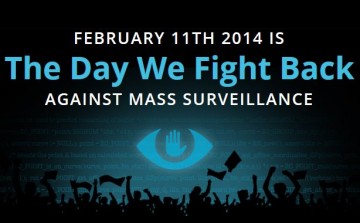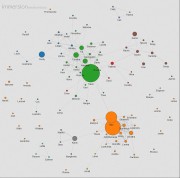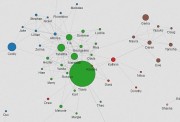Privacy and control
Blackphone is the world’s first smartphone to put privacy and control ahead of everything else. Ahead of carriers. Ahead of advertising. Blackphone is re-shaping the landscape of personal communications.
Pre-ordering begins at Mobile World Congress, Barcelona, Spain. February 24, 2014
Überwachung
Brazilian hacker creates Twitter-like app shielded from NSA gaze — RT News
January 14, 2014 – “I am proud and honored to welcome Edward Snowden to Freedom of the Press Foundation’s board of directors. He is the quintessential American whistleblower, and a personal hero of mine,” said FPF’s co-founder Daniel Ellsberg. “Leaks are the lifeblood of the republic and, for the first time, the American public has been given the chance to debate democratically the NSA’s mass surveillance programs. Accountability journalism can’t be done without the courageous acts exemplified by Snowden, and we need more like him.”
13. Januar 2014 – "Die Amerikaner haben uns belogen"
Das geplante No-Spy-Abkommen der Bundesrepublik mit den USA droht zu scheitern. Bundesregierung und BND erwarten nicht mehr, dass die Vereinigten Staaten auf die Überwachung von Deutschen verzichten werden. Die Verbitterung ist groß.
13. Januar 2014 – "Keinen erkennbaren Einfluss": Ein politisches Forschungsinstitut in den USA stellt der massenhaften Telefondatensammlung durch den Geheimdienst NSA ein vernichtendes Zeugnis aus. Ermittlungen würden meist durch andere Methoden angestoßen.
January 13, 2014 – Secret NSA eavesdropping is still in the news. Details about once secret programs continue to leak. The Director of National Intelligence has recently declassified additional information, and the President’s Review Group has just released its report and recommendations.
With all this going on, it’s easy to become inured to the breadth and depth of the NSA’s activities. But through the disclosures, we’ve learned an enormous amount about the agency’s capabilities, how it is failing to protect us, and what we need to do to regain security in the Information Age.
nutzlos im Anti-Terror-Kampf…
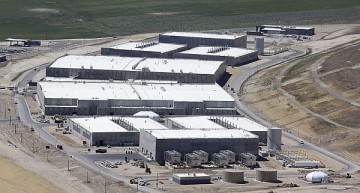
13. Januar 2014
 Ein politisches Forschungsinstitut in den USA stellt der massenhaften Telefondatensammlung durch den Geheimdienst NSA ein vernichtendes Zeugnis aus: Die Untersuchung habe ergeben, dass die Ermittlungen meistens durch traditionelle Strafverfolgungs- und Fahndungsmethoden angestoßen worden seien. Dagegen habe das Telefondaten-Sammeln der NSA "keinen erkennbaren Einfluss auf die Verhinderung von Terrorakten gehabt".
Ein politisches Forschungsinstitut in den USA stellt der massenhaften Telefondatensammlung durch den Geheimdienst NSA ein vernichtendes Zeugnis aus: Die Untersuchung habe ergeben, dass die Ermittlungen meistens durch traditionelle Strafverfolgungs- und Fahndungsmethoden angestoßen worden seien. Dagegen habe das Telefondaten-Sammeln der NSA "keinen erkennbaren Einfluss auf die Verhinderung von Terrorakten gehabt".
Eine vom Präsidenten eingesetzte Expertenkommission war Mitte Dezember zum gleichen Ergebnis gekommen.
Sascha Lobo schwört dem Internetglauben ab – WSJ Tech – WSJ

January 11, 2014 – In January 2013, while facing several years behind bars, celebrated Internet activist Aaron Swartz made the final decision to take his own life. He was only 26 years old. One year later, the Internet honors his memory by continuing his fight against censorship, defense of the public domain, and online surveillance.
The Day We Fight Back – February 11th 2014
Warnung vor Überwachungsstaat

11. Januar 2014
Richard Clarke, der NSA-Berater des US-Präsidenten fordert eine Garantie zum Schutz der Privatsphäre auch deutscher Staatsbürger und warnt vor einem Überwachungsstaat. Im ZDF-Interview erklärt Clarke: "Im Grunde besitzen wir die technischen Möglichkeiten, einen Überwachungsstaat zu schaffen. Unsere Vorschläge sollen aber dafür sorgen, dass wir genügend Barrieren aufbauen, die verhindern, dass wir ein Polizeistaat werden.
January 8, 2014 – These two pieces, the first by Marcy Wheeler, in part commenting on the second by Amy Davidson in the New Yorker (along with Snowden himself, in his interview with Bart Gellman) are the first I’ve seen making a point I’ve been making for years: contrary to the frequent assertions in the last week (including by Fred Kaplan) that Snowden is particularly reprehensible because he "broke his OATH of secrecy," neither Snowden nor anyone else broke such a secrecy "oath."
January 7, 2014 – Stealing J. Edgar Hoover’s Secrets: One night in 1971, files were stolen from an F.B.I. office near Philadelphia. They proved that the bureau was spying on thousands of Americans. The case was unsolved, until now.
unterzeichnet von William Binney, Thomas Drake, Edward Loomis, J. Kirk Wiebe, Ray McGovern, Elizabeth Murray, Coleen Rowley, Daniel Ellsberg
January 7, 2014 – In a memo to President Obama, former National Security Agency insiders explain how NSA leaders botched intelligence collection and analysis before 9/11, covered up the mistakes, and violated the constitutional rights of the American people, all while wasting billions of dollars and misleading the public.
"Privatsphäre ist kein Luxusgut…"
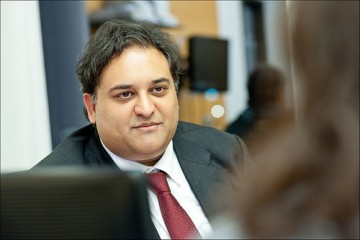
8. Januar 2014
Der LIBE-Ausschuss des EU-Parlaments hat monatelang die Auswirkungen des NSA-Skandals auf die Bürger der EU untersucht. Der britische EU-Abgeordnete Claude Moraes hat nun als Berichterstatter den Entwurf seines Abschlussberichts vorgelegt. Dort heißt es: "Privatsphäre ist kein Luxusgut, sondern der Grundstein einer freien und demokratischen Gesellschaft."
Aus den Untersuchungen und Befragungen von Experten ergeben sich aber "überzeugende Beweise für die Existenz weitreichender, komplexer und technisch weit entwickelter Systeme bei den Geheimdiensten der USA und einiger EU-Staaten, um in beispiellosem Ausmaß, unterschiedslos und verdachtsunabhängig die Kommunikations- und Standortdaten sowie weitere Metadaten der Menschen in aller Welt zu sammeln, zu speichern und zu analysieren".
Immersion: a people-centric view of your email life
- Immersion Demo – Was eMail-Metadaten verraten – Screencopy
- Immersion Demo – Was eMail-Metadaten verraten
…auch US-Abgeordnete überwacht?
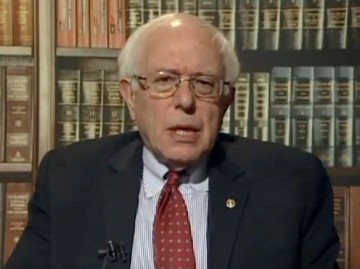
5. Januar 2014
US-Senator Bernie Sanders aus Vermont hat eine ganz einfache Frage an den Spähdienst NSA gestellt: "Überwachen Sie Abgeordnete im US-Kongress oder andere gewählte US-Volksvertreter? Oder haben Sie das in der Vergangenheit getan?"
Die bisherige Antwort der NSA ist vage: "Mitglieder des US-Kongresses genießen denselben Schutz wie alle US-Bürger…" Bekanntlich speichert die NSA Telefondaten von Millionen US-Bürgern in ihren Datenbanken. Und es sieht so aus, dass auch die Abgeordneten, zu deren Aufgaben die Kontrolle der Geheimdienste gehört, dieser Überwachung unterliegen.
January 2014 – The signatories of this declaration call upon nation states to take action. Intelligence agencies must be subjected to transparency and accountability. People must be free from blanket mass surveillance conducted by intelligence agencies from their own or foreign countries. States must effectively protect everyone’s fundamental rights and freedoms, and particularly everyone’s privacy.
"Eindringen in harte Ziele"

3. Januar 2014
 Der US-Geheimdienst NSA arbeitet laut Washington Post intensiv an der Entwicklung eines sog. Quantencomputers. Von einem solchen Computer wird erwartet, dass er alle zur Zeit gängigen Verschlüsselungen knacken könnte – verschlüsselte Daten von Banken, Forschungseinrichtungen und Regierungen könnten dadurch problemlos zugänglich werden.
Der US-Geheimdienst NSA arbeitet laut Washington Post intensiv an der Entwicklung eines sog. Quantencomputers. Von einem solchen Computer wird erwartet, dass er alle zur Zeit gängigen Verschlüsselungen knacken könnte – verschlüsselte Daten von Banken, Forschungseinrichtungen und Regierungen könnten dadurch problemlos zugänglich werden.

